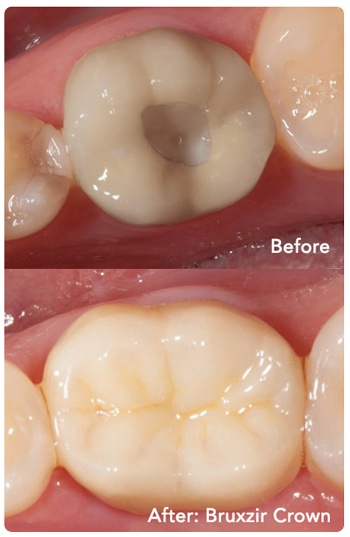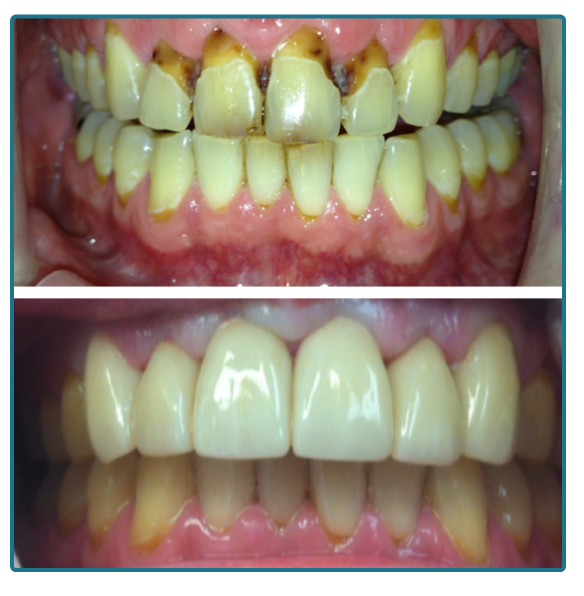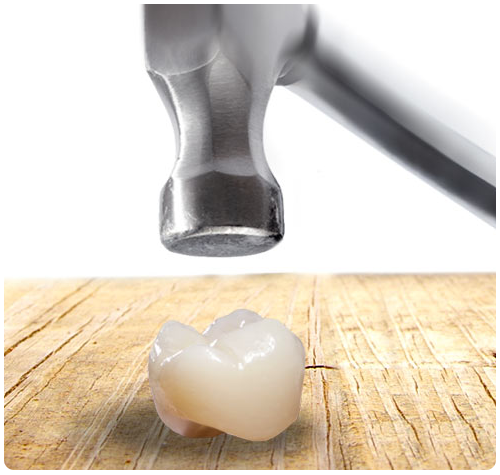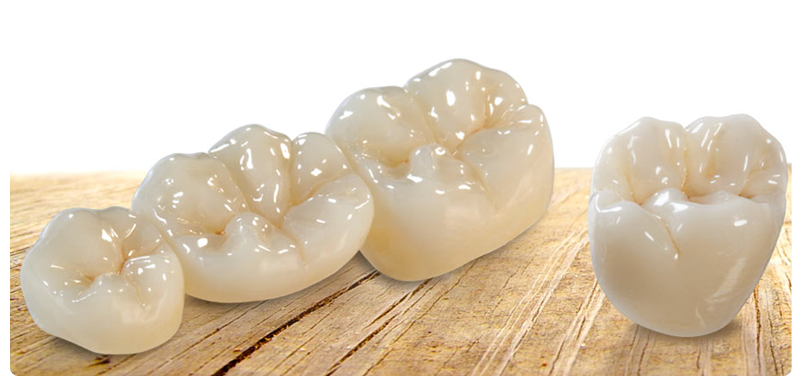There are a variety of situations that require a tooth to be restored with a dental crown. The following are the most common:
Large filling: When a tooth has a cavity or fracture that involves half the width of the tooth or more, it needs to be covered with a crown. This is because the remaining tooth around the large filling is so weak that it is prone to fracture. Sometimes a large filling that has been in the mouth for a while will need to be replaced with a crown because the tooth shows signs of stress and cracks around the filling.
Root canal: Root canal treatment leaves the tooth hollowed out and predisposes the remaining tooth to cracking. So, a tooth that has had a root canal almost always needs to be restored with a crown immediately to prevent it from fracturing.
Cracked tooth syndrome: This is a condition whereby a patient has fractures inside a tooth that cause pain when it is chewed on a certain way. Chewing produces stress on fracture lines that make it feel like it is splitting apart. A crown will hold the tooth together and redistribute the stress evenly throughout the tooth, eliminating the pain in most instances. In these situations, it is best to leave a temporary crown on for a while to make sure the pain goes away and the tooth doesn’t require a root canal.
Broken cusps: Cusps frequently break off of teeth due to trauma or large existing fillings. Since the cusps are the part of the tooth that take the most stress during chewing, they need to be completely covered or the tooth or filling will keep fracturing. Sometimes the tooth breaks all the way to the bone, and a crown-lengthening procedure is necessary. This means the bone and gums need to be trimmed down below the edge of the fractured part of the tooth so the margin of the crown can be placed on healthy, strong tooth structure.
Excessive wear of teeth: If a person has a habit of grinding their teeth, the teeth will become shorter over time. The teeth can also wear away due to acid erosion caused by gastrointestinal acid reflux (GERD), bulimia, or an acidic diet. Sometimes, the enamel will wear away completely, leaving small, soft teeth. Over time, the bite can collapse and the only way of restoring the teeth properly is by increasing the bite and covering the teeth with crowns.
Undesirable appearance of teeth: Teeth that have an unacceptable appearance due to color, shape, or spaces between teeth can be made to look very natural and beautiful with crowns. Dental veneers are a very effective and conservative way of enhancing the look of the front teeth. They can be made to look very natural, and sometimes they don’t even require preparing or shaving the existing teeth.
Other: Crowns are placed on dental implants to restore spaces left from missing teeth. Another way of filling these spaces is with dental bridges, which are made from crowns on the teeth next to the spaces attached to fake teeth in the middle. If teeth are loose, crowns can be placed on multiple teeth and splinted together to provide more stability.
The tooth being restored is numbed so that it isn’t painful during the crown preparation. This requires a shot in the gums of lidocaine or another local anesthetic. After the procedure is over and the anesthesia has worn off, the patient may feel some sensitivity with the temporary crown or some soreness in the gums around the tooth. The pain is very minimal though and shouldn’t last long.



